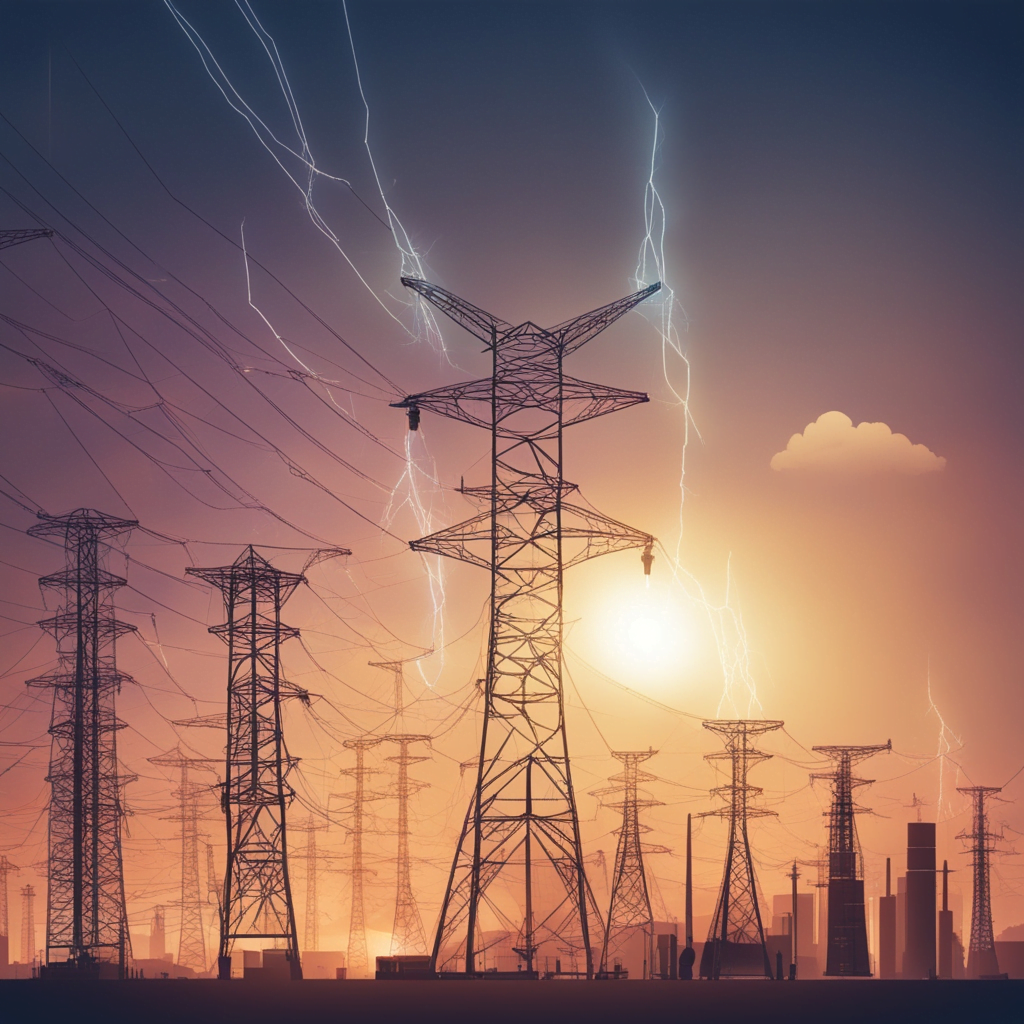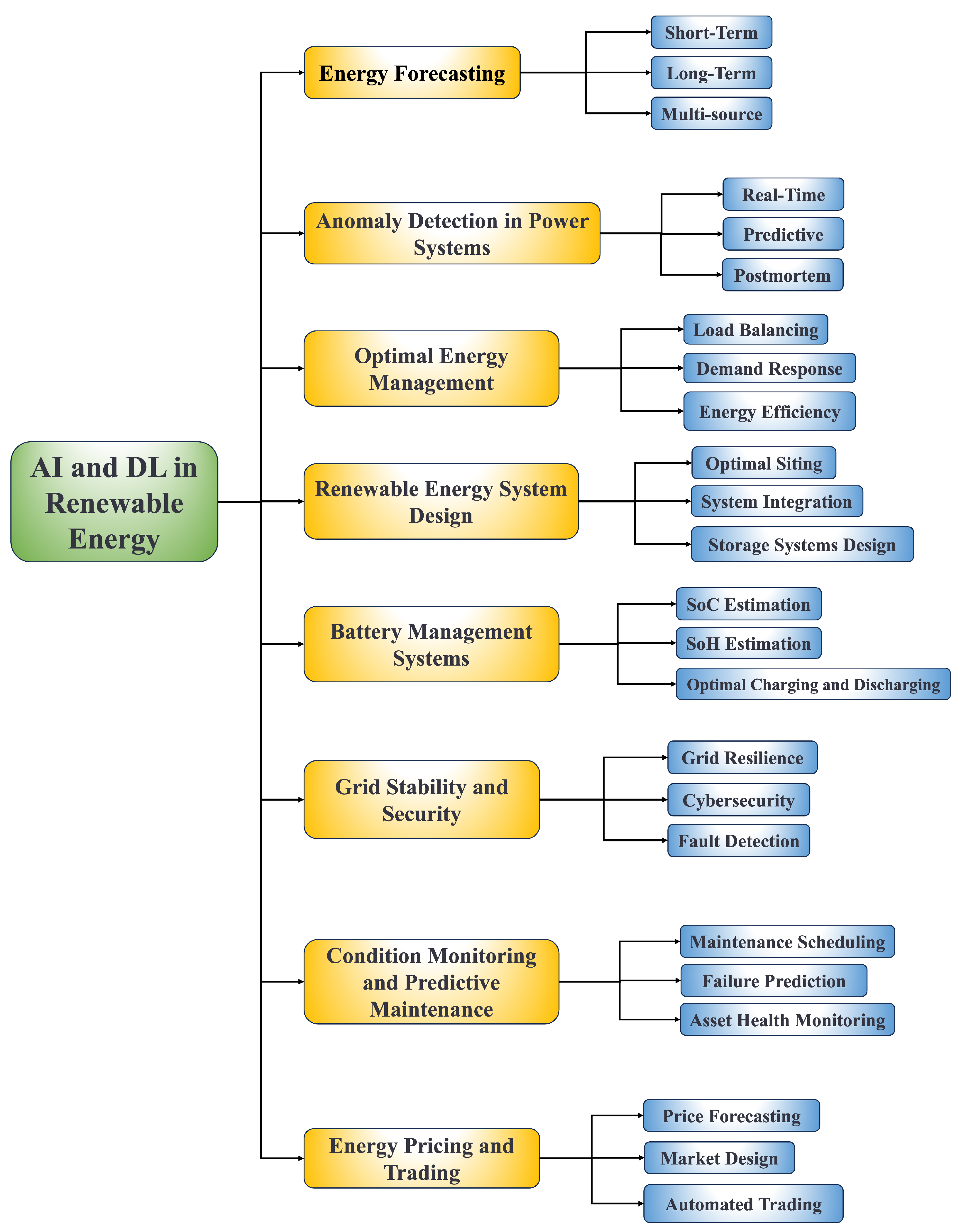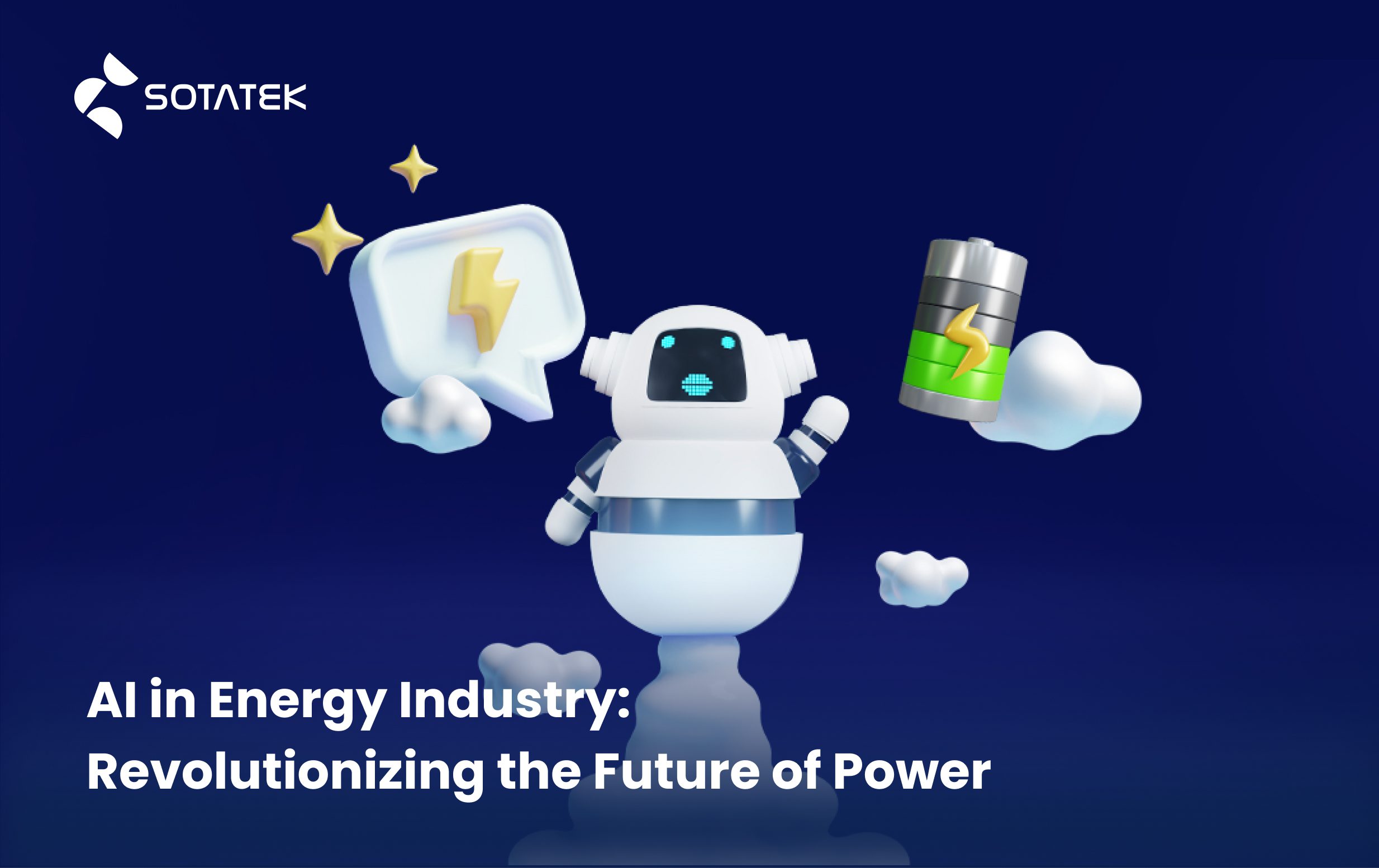Physical Address
304 North Cardinal St.
Dorchester Center, MA 02124

Explore how AI in the Energy Sector is revolutionizing energy management, enhancing operational efficiency, and paving the way for sustainable solutions. Discover the latest innovations and trends in artificial intelligence that are transforming energy production, distribution, and consumption.
AI is revolutionizing the energy sector, allowing companies to monitor and adjust equipment in real-time, predict failures, and automate processes. It also helps in the integration of renewable energy sources into the grid, enabling better management of energy demand and supply.
With AI, the energy sector is becoming more sustainable and cost-effective, reducing environmental impact and increasing energy accessibility for all. By harnessing the power of AI, the energy sector is set to undergo significant transformation, providing benefits to both businesses and consumers.
In the energy sector, AI technology plays a crucial role in improving efficiency. By collecting and analyzing vast amounts of data, AI algorithms can identify patterns and make accurate predictions, helping businesses optimize their operations.
Here are some ways AI improves efficiency:
The integration of AI in energy generation systems brings about remarkable improvements in productivity and reliability. By harnessing the power of AI, energy companies can optimize energy generation and enhance renewable energy utilization.
Take a look at some benefits of using AI for energy generation:
By embracing AI technology, the energy sector can enhance its efficiency, reduce costs, and pave the way for a more sustainable future.
The use of artificial intelligence (AI) in the energy sector has revolutionized the way we produce, distribute, and consume energy. By harnessing the power of AI technology, energy companies can enhance their operations, reduce costs, and improve overall efficiency. One of the areas where AI is making a significant impact is in the applications related to energy management and optimization. In this article, we will explore the various AI applications in the energy sector, focusing on predictive maintenance, smart grid management, and energy demand forecasting.
Predictive maintenance is a crucial aspect of energy infrastructure management. By utilizing AI algorithms and machine learning techniques, energy companies can predict the maintenance needs of their equipment and infrastructure. This proactive approach helps identify potential issues before they become major problems, ensuring uninterrupted energy supply and reducing unplanned downtime.
AI-powered predictive maintenance systems analyze data from various sources such as sensors, historical records, and weather forecasts to identify patterns and anomalies. These systems can detect early signs of equipment failure, highlight areas that require maintenance or replacement, and optimize maintenance schedules. By optimizing maintenance practices, energy companies can reduce costs, extend the lifespan of their assets, and improve the overall reliability of their energy infrastructure.
The implementation of smart grid technology has revolutionized the way electricity is generated, transmitted, and consumed. AI plays a crucial role in managing these complex smart grids. By integrating AI algorithms into the grid management systems, utilities can optimize energy distribution, reduce losses, and improve overall grid stability.
AI-powered smart grid management systems analyze real-time data from sensors and other sources to monitor grid performance, identify potential grid disruptions, and automatically take corrective measures. These systems can detect abnormalities in power flow, predict and prevent grid failures, and optimize energy routing. By improving grid management efficiency, AI helps utilities meet the growing energy demand while minimizing costs and environmental impact.
Accurate forecasting of energy demand is crucial for energy companies to optimize their production, distribution, and pricing strategies. AI algorithms, combined with historical data and real-time information, enable accurate and reliable energy demand forecasting.
AI-powered energy demand forecasting systems analyze various factors such as weather patterns, economic trends, population growth, and historical consumption patterns to predict future energy demand. By understanding the factors influencing energy demand, these systems help companies optimize their production schedules, avoid excess capacity, and reduce energy wastage.
The integration of AI in energy demand forecasting provides energy companies with valuable insights to make informed decisions, minimize costs, and enhance overall operational efficiency.
Artificial Intelligence (AI) is revolutionizing industries across the board, and the energy sector is no exception. By harnessing the power of AI, companies in the energy sector are experiencing a wide range of benefits that are positively impacting their operations and bottom line. From reducing costs to enhancing reliability and increasing sustainability, AI is driving significant advancements in the energy industry.
One of the major benefits of AI in the energy sector is the ability to reduce costs. AI-powered systems can analyze vast amounts of data in real-time, identifying inefficiencies and potential cost-saving opportunities. This enables energy companies to optimize their operations, streamline processes, and allocate resources more effectively. By automating tasks that were previously performed manually, AI helps to minimize labor costs while maximizing operational efficiency.
The integration of AI into the energy sector also leads to enhanced reliability in energy production and distribution. AI can predict and detect faults in the infrastructure, allowing for proactive maintenance and minimizing the risk of unplanned downtime. Additionally, AI can optimize energy generation and consumption, ensuring a more stable and consistent supply of electricity. By leveraging AI technology, energy companies can enhance the reliability of their operations, reducing the frequency and duration of power outages.
Another vital benefit of AI in the energy sector is the potential for increased sustainability. AI systems can analyze vast amounts of data related to energy consumption and production, helping to identify patterns, trends, and opportunities for improvement. By optimizing energy usage, AI can reduce waste, lower carbon emissions, and promote the integration of renewable energy sources. With the planet facing pressing environmental challenges, AI is proving to be a valuable tool in driving the energy sector towards a greener and more sustainable future.

Credit: www.simplilearn.com
Challenges and limitations arise when implementing AI in the energy sector due to data availability, security concerns, and regulatory compliance. The successful integration of AI technology requires addressing these issues to fully harness its potential in transforming the energy industry.
The widespread adoption of artificial intelligence (AI) in the energy sector has brought about numerous benefits, from increased efficiency to predictive maintenance and cost reduction. However, along with these advantages come several challenges and limitations that need to be addressed. One of the most critical concerns is data privacy and security.
In today’s digital age, data is considered the new oil. The energy sector relies heavily on data for various operations, including demand forecasting, grid optimization, and asset management. As AI algorithms consume vast amounts of data, it becomes crucial to ensure the privacy and security of this information. Unauthorized access or breaches can lead to severe consequences, including financial losses and reputational damage. Therefore, energy companies must implement robust cybersecurity measures to protect their data and systems.
Implementing AI in the energy sector requires a skilled workforce capable of managing and leveraging this technology effectively. However, there is a shortage of professionals with expertise in AI, data analysis, and machine learning within the energy industry. The current workforce may lack the knowledge and skills required for successful AI integration, limiting the sector’s ability to fully harness the benefits of this technology.
To overcome this challenge, energy companies need to invest in training programs and initiatives to upskill their existing employees. They should collaborate with educational institutions and industry experts to develop specialized courses and certifications. Additionally, attracting new talent with expertise in AI can help fill the skills gap and drive innovation in the energy sector.
Integrating AI systems into existing energy infrastructure can be complex and challenging. The energy sector operates on a diverse range of technologies and platforms, making interoperability a significant concern. Different systems may use incompatible data formats or have varying communication protocols, hindering the seamless integration of AI solutions.
To address this limitation, energy companies need to focus on standardization and harmonization efforts. They should adopt open data formats and standardized APIs to facilitate data exchange and interoperability between different systems. Collaborating with industry stakeholders and regulatory bodies can help establish common frameworks and guidelines for AI integration, enabling more efficient and effective operations within the energy sector.
In conclusion, while AI offers tremendous potential for the energy sector, it also presents several challenges and limitations. Ensuring data privacy and security, addressing the skills gap, and promoting integration and interoperability are essential for successful AI adoption. By proactively addressing these issues, the energy sector can maximize the benefits of AI while mitigating potential risks and vulnerabilities.
As the world moves towards a sustainable future, the energy sector is undergoing a significant transformation. The integration of Artificial Intelligence (AI) is revolutionizing the way the industry operates. Advancements in machine learning, emerging trends, and technologies are shaping the future of the energy sector, unlocking exciting possibilities for efficient energy generation, distribution, and consumption.
The energy sector is benefiting greatly from advancements in machine learning. With AI-powered algorithms, data collected from various sources can be analyzed in real-time, enabling organizations to make informed decisions about energy production, demand forecasting, and grid optimization.
Machine learning algorithms have the ability to predict energy usage patterns and identify anomalies, helping companies streamline their operations and reduce waste. By analyzing historical data and building models that continually learn from new data, AI systems can provide valuable insights that improve efficiency and minimize costs.
Several emerging trends and technologies are shaping the future of AI in the energy sector:
The adoption of these emerging trends and technologies not only enhances the efficiency and sustainability of the energy sector but also paves the way for the integration of renewable energy sources on a larger scale.

Credit: www.mdpi.com

Credit: www.sotatek.com
AI is used in the energy sector to improve efficiency, optimize energy usage, and enable predictive maintenance. It analyzes data, identifies patterns, and makes real-time adjustments for smarter energy management. This technology helps reduce costs, increase renewable energy integration, and enhance grid stability.
Generative AI in the energy sector refers to the use of artificial intelligence to create new, innovative solutions for energy generation, optimization, and management. It allows for the development of advanced algorithms and models that improve efficiency and reduce environmental impact in the energy industry.
The key challenges of AI in the energy sector include data quality and availability, integration with existing systems, regulatory compliance, cyber-security risks, and ethical considerations.
Google is using AI to revolutionize the energy sector with its advanced technologies.
AI technology is revolutionizing the energy sector and bringing about significant advancements. From optimizing energy production and consumption to enhancing grid management and reducing operational costs, AI offers immense potential for the industry. As companies continue to invest in AI solutions, it is clear that the energy landscape is on the verge of a transformation.
The future holds exciting possibilities as AI-driven innovations pave the way for a more efficient, sustainable, and intelligent energy sector.